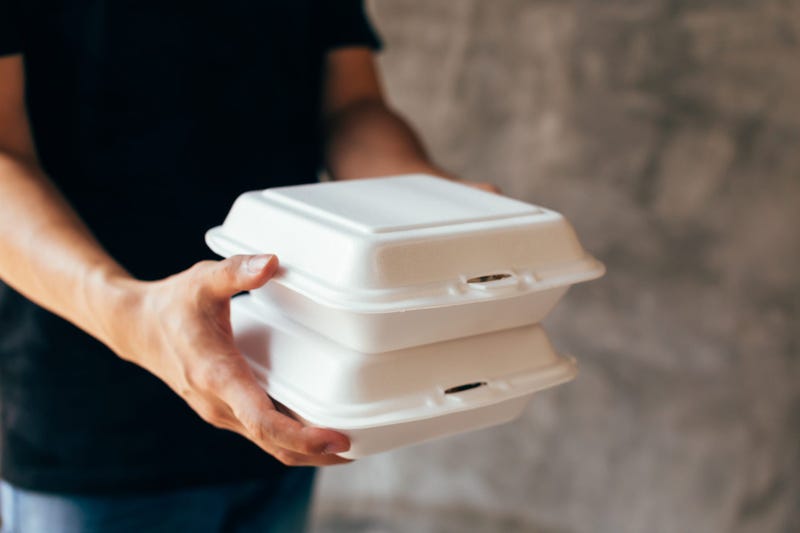
Here’s another reason to hate COVID-19 coronavirus: It’s making us trashy.
Stay-in-place orders, mandatory sequestration, social distancing, whatever you call it has got us eating a lot more take out and ordering stuff in from Amazon, E-Bay, Wish, Geek, etc.
And, a lot of those dinners and items we ran up on our credit cards all came packaged in cardboard boxes or heavy paper and Styrofoam containers.
And after we open it, it all goes to the curb and into the waste stream.
“We’re seeing volumes—31% higher than what we would normally see this time of year,” says Katherine Costanza, the Assistant Director of Environmental Affairs for Jefferson Parish.
The Parish’s contracted hauler, Waste Connections, is the company responsible for picking up the Parish’s trash.
District Manager Clay Richardson describes what he’s seeing in the bins:
“Since all the stay-at-home orders, it’s causing a tremendous amount of fast food being ate at home and restaurant food being ate at home that’s ending up at the curb.”
Costanza explains the reason for the explosion in trash getting picked up this way:
“People who are generally working in office buildings, the waste that they generate would normally be collected and handled by private haulers,” she says. “Now you have all those people at home and that’s being picked up by the municipal contractor.”
And she says with everybody home from work, and bored…
“You have people staying home, cleaning up yards, cleaning up sheds and garages, so you have a lot of that other type of residual material heading to the curb.”
This is the kind of stuff that curbside recycling should be taking care of, but curbside recycling in unincorporated Jefferson Parish and the town of Jean Lafitte was suspended March 21st, 2020 due to the spread of the COVID-19 virus throughout the metropolitan area.
But what exactly does that mean?
“There’s some strong evidence to suggest COVID-19 virus could possible live in the residual material left in the cans and bottles,” Costanza points out.
Protecting waste haulers from infection is the reason curbside recycling is curtailed.
So the same trucks pulling extra duty, putting on extra wear and tear and burning fuel with extra runs to the landfill need to be sanitized as well.
“We have a crew come in every night,” Clay Richardson says. “Sanitize every truck, steering wheels, doorknobs, seats, dash, and interior of the vehicles.
Waste services are deemed essential businesses during the outbreak, so they must be on the road and doing their job.
“We have to grapple with protecting workers and at the same time squelch the spread of this virus,” Costanza says.
Richardson says Waste Connections got lucky when they order extra gloves, masks, suits, and other Personal Protection Equipment for his crews. So much so, they were able to donate to Tulane University early one when the medical school was in need of PPE.
Meanwhile, the trucks still roll. Though some scheduled pick up times are late or even delayed, they are doing their level best to keep trash in our lives from piling up.
“We’ve been pretty lucky not to have a break out here,” Richardson says.
